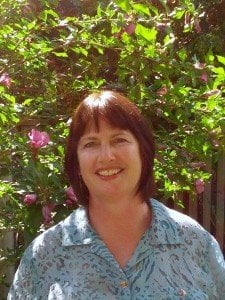 Justice Camp 2014 has ended. As I write, a few final good-byes are being said.
Justice Camp 2014 has ended. As I write, a few final good-byes are being said.
On Wednesday, newly returned from an immersion visit of 14 people to the oil/tar sands of northern Alberta, I was bereft of words when asked, “How did the immersion go?” Today, I have begun to find some words to reflect in a small way on a 3-day immersion in complexity.
Scriptural exegesis led by Justice Camp theologians, Stephen Martin and Sylvia Keesmaat illuminated land as a living creation with all its God-given agency. The land generates and yields its fruit, it suffers violence, and it praises God through its vast creaturely choir. Land, people, and God are constantly referenced to each other throughout the biblical narrative.
Several days ago, while peering into and across the hollowed out Earth from a platform inside the operations of Syncrude where for miles around the top soil and overburden have been removed so that the bitumen could be extracted, the Earth lay exposed. There was no sign of life 360 degrees around from where we stood. I felt a growing pit in my stomach. A visit to a reclamation area where the top soil, plants and trees had been replanted didn’t diminish my unease.
We met with staff members at the Mikisew Cree consultation office and, later, with elders and staff at Fort McKay First Nation on Treaty 8 lands. They described, with feeling, the enormous tension between the disappearance of traditional land and way of life and the opportunities for young people to get skilled jobs in the energy sector, and for communities to increase their standard of living.
Meanwhile, the Cree and Dene of these communities in northern Alberta express fear of their own extinguishment in the land, and are consigned to a postage stamp area of land surrounded by sections marked for further development. Communities living downstream from tailings ponds are recording higher rates of certain kinds of cancers and health effects of poor air quality. A sense of anomie and displacement prevails in the stories of elders and youth. “I am homesick for home,” said one young woman who lives and works in her community.
“Placelessness” is a symptom of our time, says writer and farmer, Wendell Berry. In the Athabasca region, place as a “load and go”, profit-driven enterprise has served as the pretext for industrializing top grade farmland and removing oxygen-producing boreal forests to extract bitumen. In other places such as Halton Hills (Credit River watershed) where I live, placelessness serves to encourage ongoing (sub)urban sprawl, the loss of agricultural land and local species.
To take on these issues globally is overwhelming. One growing response to these complex issues is to care for one of the “millions of small pieces and parcels of land, each one of which is in some precious way different from all the others.” Who else, but the Cree and Dene of the Athabasca River watershed will know the value and uses of varieties of medicinal rat root in the boreal forest of northern Alberta? Gaining ground since the 1980s is a tradition called “bioregionalism.” It refers to “a place defined by its life forms, its topography, and its biota, rather than by human dictates…” More recently, American theologian Ched Myers has promoted the practice of watershed discipleship which, in turn, is gaining support through KAIROS and its member churches and agencies in Canada. Myers quotes an 1860s definition of watershed by John Wesley Powell as “that area of land, bounded by a hydrologic system, within which all living things are inextricably linked by their common water course, and where, as humans settled…they become part of the community.” A watershed discipleship approach to the Athabasca River watershed, a basin within which the oil/tar sands reside, is nothing new to the Cree, Dene, and indeed the Mi’kmaq, the Maliseet and other nations whose lives have always reflected the deep integration of Creator, people and land. This makes effective consultation with extraction companies and government even more critical from the outset. While early consultation with affected First Nations is improving, there is still a way to go. And overall, the call for no new approvals of mining operations goes unheeded. God meets us in the wilderness of our times, and tests and teaches us. What I have been reminded of in a deeper way with my companions in the past week is that God’s story is good and hopeful. My own consumption of the Earth’s resources needs to be re-examined in light of how it increases demand fossil fuels. Anglicans can join an active and growing movement to rein in our dependence on fossil fuels and continue to green our sacred spaces and gatherings. We need to grow our understanding of and support for treaty rights. And, as people of faith we are called to a radical new obedience to care for the Earth in the smaller precious places within the larger world.
